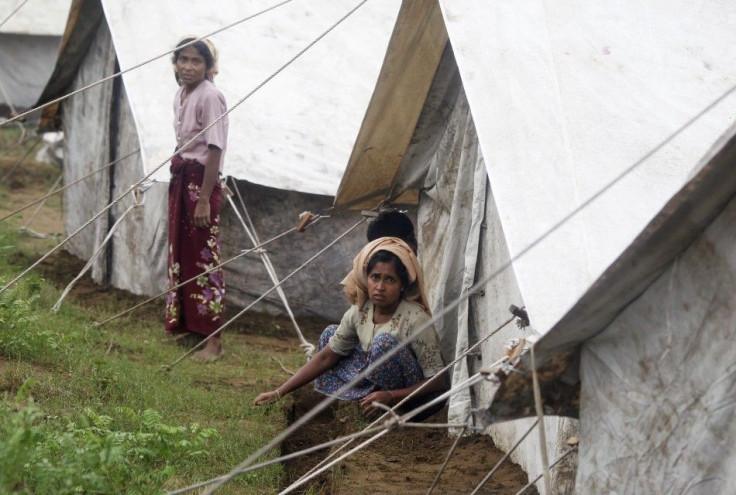Who Are The Rohingya? Myanmar's Long-Persecuted Ethnic Minority

Who are the Rohingya?
The Rohingya are a Muslim ethnic minority population of roughly 1 million people in Myanmar who speak Rohingya, an Indo-European language related to Bengali. Rohingya origin is disputed; some say they migrated from Bengal, while others say they are from the Rakhine State in Myanmar.
What are the Rohingya beliefs?
The Rohingya practice Sunni Islam, the largest sect of the Islam religion, with components of Sufism -- a Muslim movement described as Islamic mysticism that starkly contrasts against Taliban ideology.
Where do the Rohingya people live?
The Rohingya Muslim population primarily resides in northern Rakine State in western Myanmar, a coastal region of roughly 3 million residents near the country’s border with Bangladesh. However, nearly 140,000 Rohingya are internally displaced and live in refugee camps, following conflict with Rakhine State’s Buddhist majority population, according to data from the United Nations Refugee Agency.
Why is there conflict between the Rohingya and the Buddhist majority?
There are deep religious and racial tensions between the two ethnic groups, according to Lex Rieffel, a senior fellow at Brookings Institute and an expert on Southeast Asia. The Buddhist majority says the Rohingya are not indigenous to Rakhine State and thus should be denied citizenship. This tension has escalated into widespread violence in recent years, killing and displacing thousands. The United Nations has reported routine and deliberate human-rights violations in the country. An estimated 810,000 people in northern Rakhine State are currently without citizenship and nearly 100,000 persecuted Rohingya have fled the country all together, according to recent data. As of 2013, Myanmar -- a country formerly known as Burma -- had a low level of human development, ranking 150 out of 187 countries total, according to the Human Development Index.
What is being done to help the Rohingya?
Several humanitarian organizations are monitoring the persecution of Rohingya in Myanmar and many are urging outside intervention. Western countries, particularly the United States, are pressuring the country to take steps toward improving the Rohingya situation. Since 2004, the Myanmar government has managed to transition out of a 50-year-long military dictatorship into a semi-democracy. But in the last two years, the government has been accused of not committing to further meaningful reform, according to Rieffel. For instance, Myanmar’s Parliament is considering passing legislation that would bar Rohingya from voting in next year’s elections. The government recently announced that the Rohingya can become official Myanmar citizens, but only if they agree to be registered under another ethnicity and if they can verify their family has lived there for at least 60 years. Ultimately, some experts say the people of Myanmar must determine how to address this long-standing conflict.
© Copyright IBTimes 2025. All rights reserved.





















